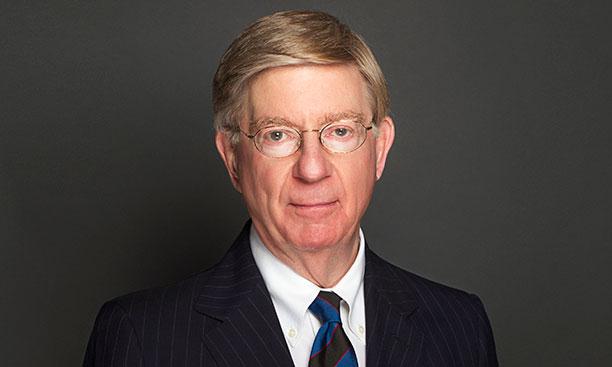
Viet Thanh Nguyen
Dear Commons Community,
Viet Thanh Nguyen, a novelist and professor of English at the University of Southern California, has an op-ed in today’s New York Times explaining why he teaches. His refers to a good teacher as one who cares about his/her students, who is available to them, who is passionate about a subject and who believes in the importance of scholarship. He also makes comparisons to other vocations in the military and government.
His conclusion: “Higher education, like the rest of American society, from our political and corporate leaders on down, sends a mixed signal. We rhetorically prioritize general education, or a unified country, and yet put obstacles in the way of genuinely serving students or constituents. In this way, higher education is indeed a microcosm of our entire society and its failures, with an elite, well-paid minority and an increasingly suffering majority of the overworked and the underpaid.
If our leaders should be teachers, our teachers should also be leaders, understanding that what we do in our universities is not simply to research or teach but to model what a democracy should be. The most senior of the professors should be teaching to all the undergraduates, and the least senior of our underemployed teachers should be elevated so that they, too, can share in the promise of our general education: to prepare young people for the goals of economic fulfillment and democratic responsibility. One cannot survive without the other.”
Good insight!
The entire op-ed is below.
Tony
———————————————————————————————
Why I Teach?
By Viet Thanh Nguyen
My employer, the University of Southern California, requires me to teach a general education course every year. Although I sometimes resent the obligation, most of the time I am grateful for it. I have come to think of my general education classroom as both a symptom of our flawed democracy and an attempt to exercise that democracy — an effort that requires work that we oftentimes do not want to put in.
“General education” is the name U.S.C. gives to the requirements that every student has to take, and which elsewhere might be called the “core curriculum.” General education, or the core, is at the heart of any university’s mission. Students may major in dozens of different things, but they are supposed to emerge from a university education with a shared core, a general body of intellectual, ethical and cultural knowledge that will guide them even if they change careers.
To fulfill these general education requirements, students can choose different courses, including mine: the American war in Vietnam. One hundred and fifty students enroll every time I teach it. One of the most basic challenges of any other general education course is to speak to others who are not like us, whether we are professors or students. For many professors, trained to be specialists, having to speak to a broad audience is a reason to dread teaching general education. My approach is to figure out a story that I can tell my students, a narrative — or at least a set of questions — that can unite us all.
My students are representative of the university, meaning that they are mostly in the sciences, health, business, law, and so on. Like the rest of our democracy, a small percentage are veterans returned from war. A few are cadets preparing for war. Only a tiny minority come from my corner of the humanities, where my elaborate appointments are that I am a professor of English, American Studies and Ethnicity, and Comparative Literature.
While these titles are as meaningless to most people as the ribbons on a soldier’s breast, what they mean is the same: commitment. Soldiers have ideals, and so do professors. Unfortunately, our ideals are often contaminated by reality, from outrageously bloated Pentagon budgets to outrageously expensive private universities. It’s easy to forget the ideals after a decade or two in the “real world,” when pragmatism becomes natural, youthful idealism seems naïve, “experience” can become a code word for resignation to the way things are, and cynicism may mask itself as “wisdom.”
This is why I love to teach general education. If I do my job right, I learn as much as the students do. With their perpetual youth, innocence, hope and idealism, they instruct me to believe that the world can actually be changed.
Even as these students are conflicted with real anxieties about their futures and their personal problems, their existence reminds me of my most basic function at the university: to teach. Bad teachers waste lives and time, their own and those of their students. Good teachers competently teach their subjects. Great teachers give something from deep inside of themselves.
I expect to be a good teacher. I hope that I can find it within myself to be a great teacher. That requires that I be present for my students. That I believe in the importance of my scholarship. That I convey my passion for my subject to my students. That I know what my story is so I can tell it to my students. In my course, the students learn about a terrible war that killed millions of people over decades: Americans, Cambodians, Laotians and Vietnamese, among others. The story of the course is this: War involves all of us, soldiers and civilians, men and women, young and old, and it emerges from, and reveals, our enduring and inextricably intertwined humanity and inhumanity.
The questions of the course are universal as well: How does the inequality of nations and cultures determine whose stories are told and heard? What is a just memory? What is a just forgetting? How is a genuine forgiveness possible, one that is a gift that comes without conditions or expectations of reciprocity?
Our mutual obligation as professor and students is to care. I care enough to give engaging lectures and to stimulate discussion, even with 150 students. My students, for the most part, care enough to show up, or at least two-thirds to three-fourths of them do. Their obligation, as is the obligation of all citizens and residents, is to listen and to learn. To question. To participate. To be in a room where they share similarities and differences. These demands are similar to what a democracy requires from its residents and citizens.
We have a president who was elected by less than a majority of the voters. There are many other leaders in our democracy as well, in charge of politics, economics and culture. How many of these leaders can honestly say they reach and serve three-fourths of the people who fall under their sway? How many of these leaders can also claim to be teachers, sometimes in the lessons they might offer, but most of all in the examples that they set?
The spirit of general education — of a common core — should prevail for these leaders, too. And why not for the president as well? General education is not easy, either for the student or the teacher. Sometimes neither one wants to be there. But if the students may be reluctant, the teachers — and the leaders — must be enthusiastic. They must reach deep within themselves to find the passion and the story to bring their audiences together.
Nowadays the spirit of general education is hobbled by inequality, whether we speak of the increasing economic inequality of our country or the inequities of most universities. The unfortunate reality of higher education is that most of the undergraduate teaching is carried out by part-time lecturers with no job security. The full-time professoriate — people like me — are not rewarded for our teaching, but for our research and writing, often carried out in obscure ways for specialized audiences.
Higher education, like the rest of American society, from our political and corporate leaders on down, sends a mixed signal. We rhetorically prioritize general education, or a unified country, and yet put obstacles in the way of genuinely serving students or constituents. In this way, higher education is indeed a microcosm of our entire society and its failures, with an elite, well-paid minority and an increasingly suffering majority of the overworked and the underpaid.
If our leaders should be teachers, our teachers should also be leaders, understanding that what we do in our universities is not simply to research or teach but to model what a democracy should be. The most senior of the professors should be teaching to all the undergraduates, and the least senior of our underemployed teachers should be elevated so that they, too, can share in the promise of our general education: to prepare young people for the goals of economic fulfillment and democratic responsibility. One cannot survive without the other.








